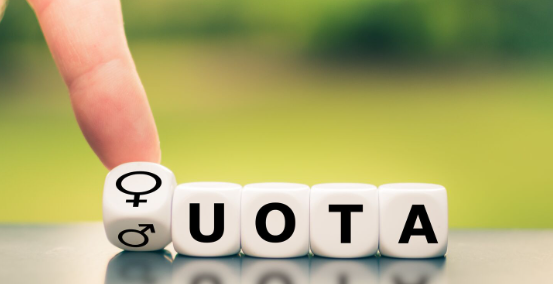The recent elections in Albania have reignited an old but still unresolved debate: can gender quotas hinder the will of the people? Three specific cases from the regions of Berat, Durrës, and Korçë have sparked discussions about the balance between ensuring gender representation and respecting the legitimacy of individual votes.
In Berat, Socialist Party candidate Julian Zyla, despite being the third most voted in the open list, will not enter the new Parliament. Instead, the mandate will go to Hatixhe Konomi, who received over 1,200 fewer votes. A similar scenario occurred in Durrës, where Ilir Ndraxhi, who secured around 1,900 more votes than Etleva Budini, will not win the seat. In Korçë, Arian Jaupllari is being penalized even though he received more votes than Besa Spaho. According to the Electoral Code, the gender quota requires that at least 30% of candidates be women. In practice, this can mean reassigning mandates to meet the gender balance. This standard is applied in many countries to improve women`s representation in politics, but the above cases illustrate the tension between formal equality and the real representation of voters choices.
This tension has sparked reactions not only from citizens but also from political figures. Former Prime Minister Sali Berisha, in a strong statement to the media, accused the ruling majority of “massive election manipulation,” mentioning pressure on vote counters and irregularities in diaspora votes. He emphasized that the diaspora had become a victim of a “criminal scheme,” citing unusual figures such as 99.6% of votes for the Socialist Party in a diaspora ballot box in Berat.
Gender Quotas: Progress or Paradox?
At its core, the gender quota system aims to correct a historical injustice in representation by creating opportunities for women in a male-dominated political system. But criticism of this system is growing, especially when candidates who have won more votes are penalized. Analysts are divided. One side views this as a “necessary democratic compromise,” where gender representation is just as important as numerical vote representation. The other side sees it as a violation of vote legitimacy and a distortion of fair competition in an open-list system. What remains clear is that this debate calls for deeper institutional reflection. Has the time come to revise how gender quotas are implemented in our electoral system, in order to ensure a fair balance between representation and merit? Ultimately, elections are a reflection of the popular will.
The rules governing representation must ensure that this will is not overturned in the name of technical adjustments. Otherwise, we risk undermining trust in the democratic system itself.
Written by our correspondent A.T.



